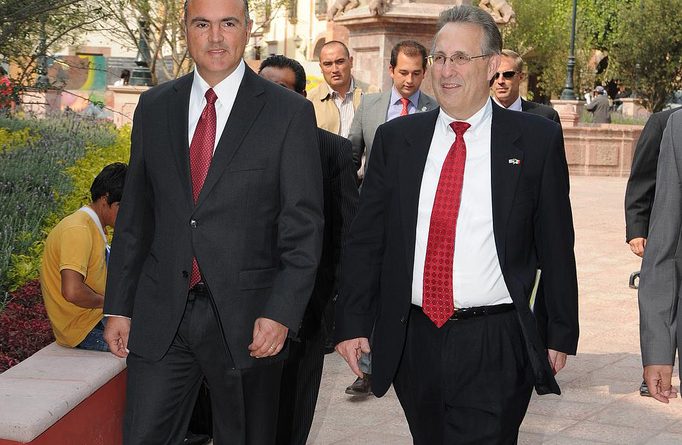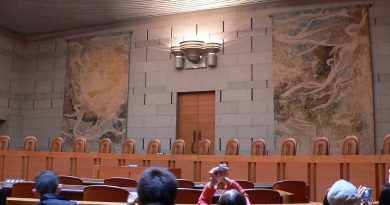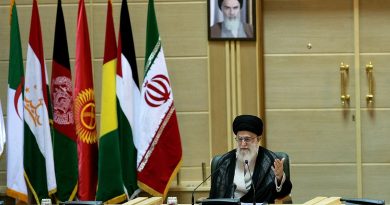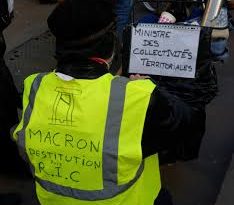Ambassador Earl Wayne Talks U.S.-Mexico Relations with Diplomacy Students
Jarrett Dang
Staff Writer
Earl Anthony Wayne, a former United States Ambassador to Mexico under President Barack Obama, spoke to Seton Hall University’s Diplomacy students about the importance of America’s relationship with its southern neighbor. Reflecting on his own experiences as the U.S.’s top diplomat to Mexico, Wayne took an in-depth look at the status of America’s relationship with Mexico and explored how it has grown and changed in the last two decades.
Ambassador Wayne has had a distinguished career in diplomacy that extends far beyond being the Ambassador to Mexico. He currently advises a number of prestigious think tanks, including the Wilson Center and the Institute for Strategic and International Studies. Prior to being appointed to lead the U.S. Mission in Mexico, Wayne served in a number of high-level roles in the U.S. Department of State, including the Ambassador to Argentina from 2007 to 2009, and the Assistant Secretary of State for Economic and Business Affairs from 2000 to 2006. In 2010, Wayne was confirmed by the Senate as a Career Ambassador, the highest rank in the U.S. Foreign Service.
Wayne kicked off his talk on the U.S.-Mexico relationship by underscoring the great impact that America’s ties with Mexico have on every U.S. citizen. The former ambassador held that U.S.-Mexico ties affect Americans on a daily basis more than any other bilateral relationship does. To this point, he emphasized three key areas of cooperation that bring mutual benefits to both countries: trade, government, and security.
Regarding trade, Wayne highlighted that since the ratification of North American Free Trade Agreement (NAFTA) in 1993, trade within North America increased by four times and bilateral trade between the U.S. and Mexico alone increased by six times. Since then, Mexico has grown to be America’s third-largest trade partner and is surpassed by only China and Canada, reports CNN. Mexico is also the United States’ second-largest export partner next to Canada, which is also a signatory of NAFTA.
The former ambassador also emphasized how integrated the two countries’ economies have become. Mexico’s largest export to America is manufactured goods such as vehicles, which are built in-country and exported to be sold on the U.S. market. In addition, a sizeable portion of Mexico’s exports to the U.S. are intermediate goods, which are materials that are used to manufacture American goods. Agriculture also plays a large role in bilateral trade, with Mexico being the U.S.’s largest supplier of agricultural imports, as per the Office of the United States Trade Representative.
Wayne also advocated that U.S.-Mexico trade has created millions of jobs. He stated that many American jobs depend on NAFTA and the newly signed U.S.-Mexico-Canada Agreement (USMCA), and that they help foster tighter ties between the two nations. Wayne defended NAFTA and stated that while some manufacturing jobs are moved from the U.S. to Mexico, around the same number of jobs are created to fill the gap. He suggested that the rise of China and automation, rather than NAFTA, is the cause of most of the job loss in America’s manufacturing sector.
Turning to security cooperation, Ambassador Wayne expressed the importance of good relations between America and its southern neighbor to combat issues like drug trafficking and illegal immigration. Wayne pointed out that while illegal immigration from Mexico is still a problem, the level of Mexicans crossing into the U.S. illegally is at its lowest since 1990; illegal immigrants that cross the border today are more likely to be of Central American origin than Mexican.
Drug smuggling from Mexico into the U.S. remains a huge problem according to Wayne. Rather than blaming each other for the problem like in the past however, the two countries have started to work together on a common framework to address issues like drugs and crime. Wayne detailed that the U.S. Mérida Initiative, created in 2007, serves as such a framework and has worked to promote security dialogue between the two nations.
Wayne also stated that Mexican drug cartels have found ways to bypass U.S. security and smuggle hard drugs like fentanyl into the country. He detailed that the vast majority of the illicit smuggling of hard drugs happens at legal ports of entry rather than by crossing the border illegally. Wayne also said that legalizing recreational marijuana in states like California and Washington helps fight the drug trade and shifts the burden off of Mexican officials.
Looking forward, the former Ambassador to Mexico spoke of recent developments in U.S.-Mexico relations and painted a picture of the future. The signing of the USMCA kept America in a NAFTA-like agreement with Mexico but brought significant changes, such as different rules of origin for vehicles made in North America.
Wayne also commented on Mexico’s new president, Andrés Manuel López Obrador, saying that the new president’s populist streak may result in disputes over longstanding policies between America and Mexico. He also brought up data from a report by showing that Mexican approval of the U.S. was down to a mere 30 percent in 2017 compared to 66 percent just two years prior. Ambassador Wayne’s overall outlook on U.S.-Mexico relations remained positive, however, and he underscored that future U.S. cooperation with Mexico is the way forward.




